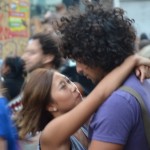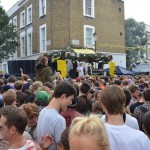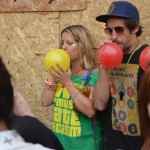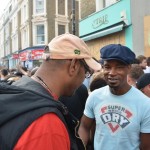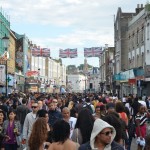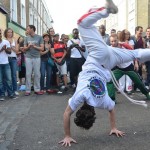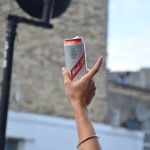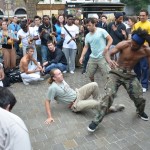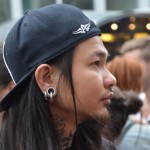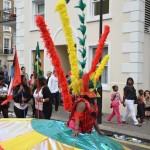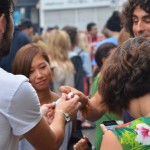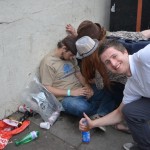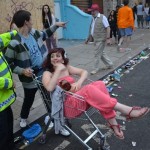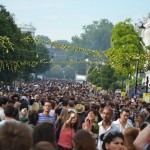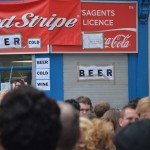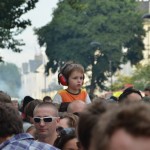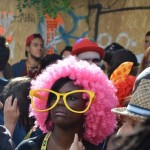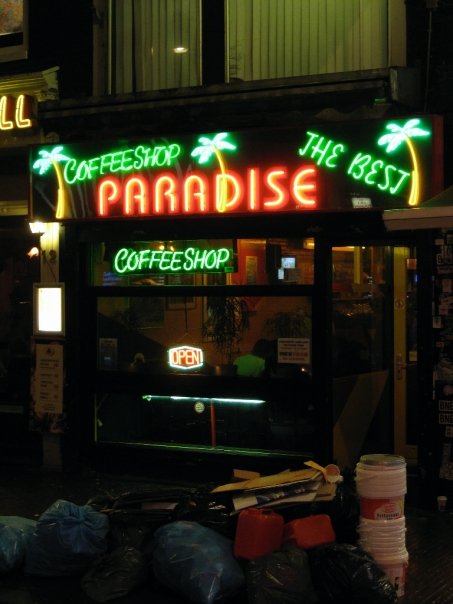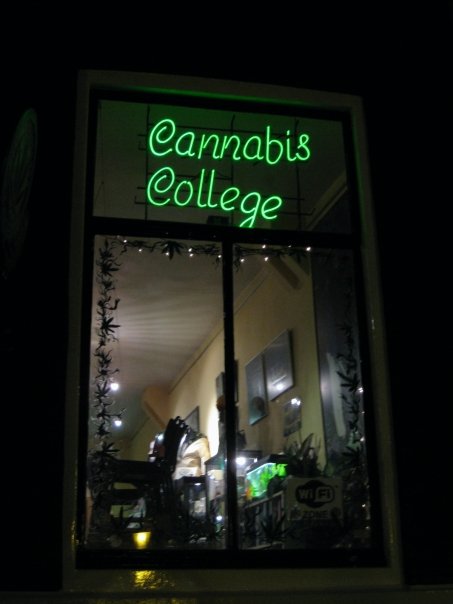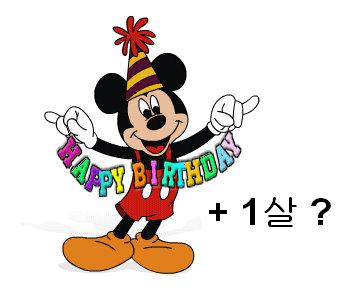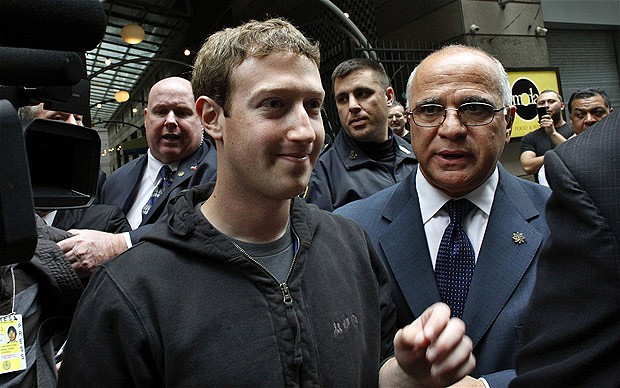When I travel abroad, I come across people all the time, all over the world who want to visit the United States. I’m frequently asked where I think they should visit, and I almost always answer their question with a question: what kind of scene are you looking for?
See, I love the East and I love the West. (I can’t say the same about the South or the Midwest, but that’s another story for another day). But they are distinctly different, from the people to the landscape to the overall culture. When I was reading a few message boards to see what other people had thought about the difference, the funniest summary I read was this:
The East Coast is John Travolta’s character (Vinnie Barbarino) in Welcome Back, Kotter, a popular late eighties sitcom. The West Coast is Sean Penn’s character (Jeff Spicoli) in Fast Times at Ridgemont High, a 1982 teen comedy film.
I found it quite interesting to explore this further, so I’ve pulled both characters’ description from Wikipedia for your enjoyment. Do you think it is accurate?
In the East Corner…Vincent “Vinnie” Barbarino!
A cocky Italian-American, and “unofficial official” leader and resident heartthrob of the Sweathogs (a group of underachieving friends). Barbarino’s prowess with women was a source of envy (and more often amusement) among his classmates. On occasion he would break out in song of his last name sung to the tune of The Regents’ classic, “Barbara Ann”. He was the first of the Sweathogs to move out on his own when he got a job as a hospital orderly. In the first episode of the series and fourth season, he has a girlfriend, Sally. Vinnie is Catholic (often quoting his mother as a saint), and as shown in “I’m Having Their Baby”, is a Star Trek fan. Little is known about Vinnie’s life at home other than his parents argue a lot (“Follow the Leader (part 2)”), his mother’s name is Margie (“The Great Debate”), and he shares a bed with his brother. The episode “Don’t Come Up And See Me Sometime” implied that Vinnie is the older of the two.
Vinnie’s catchphrases
- “Up your nose with a rubber hose!”
(Barbarino was the first in the series to rank somebody. In later episodes, other body parts and objects whose names rhymed were incorporated into the rank. For example, “Up your gizzard with a rubber lizard!” was used by Washington in a later episode.) The so-called art of ranking was immortalized in song in 1976 performed by Gabe Kaplan. The song, “Up Your Nose”, did not get very far as it highly dated itself by making numerous contemporary references– CB Radios, The Gong Show, singing cat commercials, etc.).
- “Wah-ha-ha-ha-howwww…”
(Whenever he becomes love-stricken)
- “What?” “Where?” “Why?”
(Usually to feign ignorance when accused of something or asked to do something he’s not ready to do)
- “I’m so con-fused!” (Usually over-dramatized)
- “I’m Vinnie Barbarino!” (Also over-dramatized, usually when a girl snubs or spurns him)
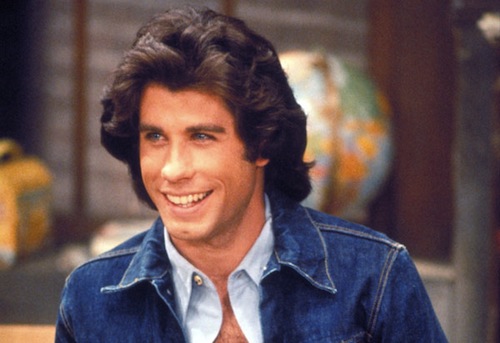
East Coast: John Travolta as Vinnie Barbarino?
In the West Corner…Jeff Spicoli!
A a fictional character in Fast Times at Ridgemont High. While he is a freshman in the book, he is a senior in the film. Spicoli is a surfer dude with no job who enjoys smoking marijuana. Penn’s performance is the first notable instance of the Southern California “surfer stoner” being portrayed on film (as culturally distinct from other “stoner” characters such as Pedro de Pacas (Cheech Marin), Man (Tommy Chong), Carl Spackler (Bill Murray) and Billy (Dennis Hopper)).
One of the first times the viewer sees Spicoli in the movie, he is late for Mr. Hand’s U.S. History class. According to one of his classmates, he has been “stoned since the third grade.” Throughout the film, Spicoli serves as the comic relief, usually opposite Mr. Hand in a series of amusing sketches. He was also late when he stayed in the food lines to get a bagel. When Mr. Hand asked him why he continually wastes his time, Jeff’s response was “I don’t know.” Mr. Hand then wrote those words on the board for all of his classes to see, with Spicoli seemingly appreciating the recognition.
He is always short of money and does not have a job. When Brad Hamilton asks him why he doesn’t have a job, Spicoli answers, “All I need are some tasty waves, a cool buzz, an’ I’m fine.” He purportedly received a guitar pick from Mick Jagger, whom he claims to have met after a Rolling Stones concert in Anaheim, California. His closest pals are two unnamed surfer dudes played by Eric Stoltz and Anthony Edwards. He is also friends with Ridgemont High’s star football player Charles Jefferson’s little brother, having played video games with him at the mall. When they were driving Charles’ car to a party, Jeff crashed the car and wrecked it. They made it look as if a rival school, Lincoln High, had done it. Jeff’s little brother, Curtis, thinks that he is stupid. He also owns a pair of turquoise colored Ray-Ban Wayfarer sunglasses, which he wears occasionally in Mr. Hand’s class.
On the day of the prom, Mr. Hand shows up at Spicoli’s house and tutors him as payback for having wasted 8 hours of his time during the school year. After the tutoring session, Jeff wonders if there’s a kid like him in Mr. Hand’s class every year. He also wonders if he’ll pass U.S. History. Mr. Hand tells him not to worry and that he’ll probably “squeak by.”
At the end of the movie, it is revealed that at some point in the future he saved Brooke Shields from drowning, and was rewarded with a large amount of money. He then blew it all by hiring Van Halen to play at his birthday party.

West Coast: Sean Penn as Jeff Spicoli?
.jpg)



